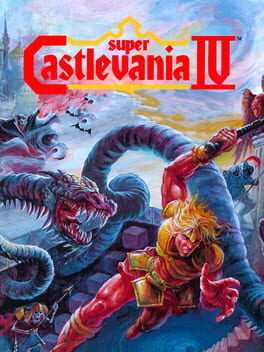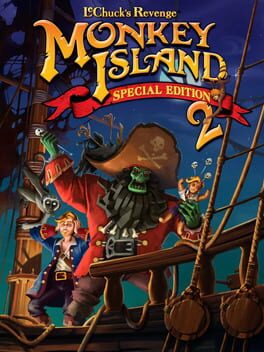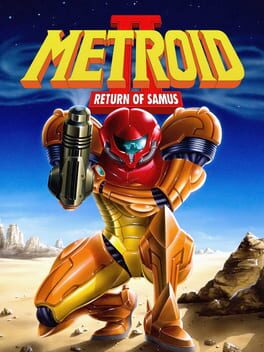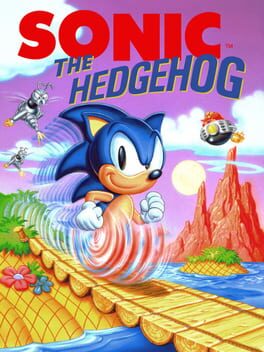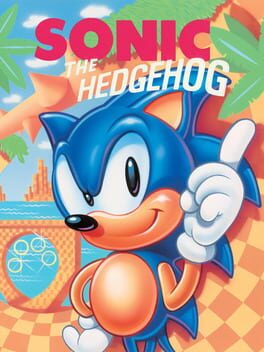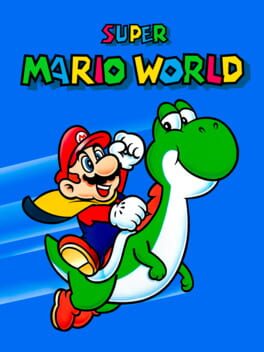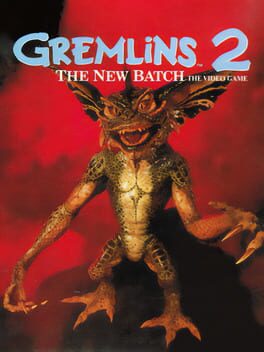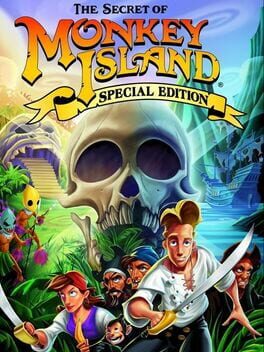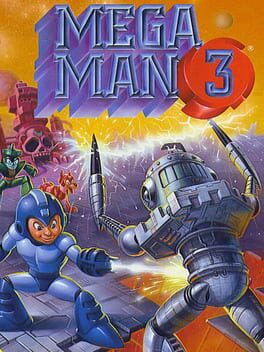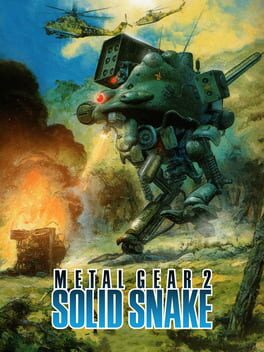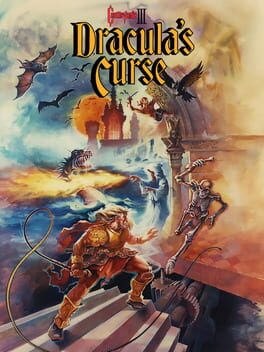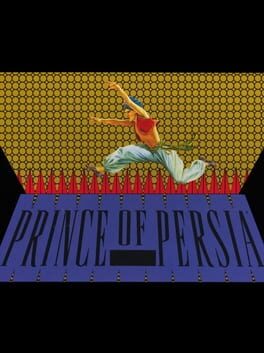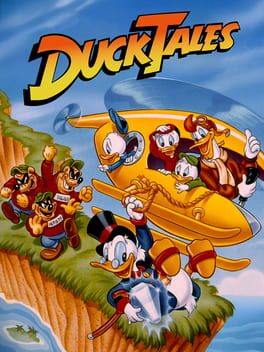TheMaxine
1991
An excellect modernization of the Castlevania series, and I'm talking modernization all the way back in 1991. Though there would be many Metroidvania-style entries in the future with better controls, Castlevania 4 is one of the best controlling Classicvania-style games out there, if not THE best.
Admittingly, the inclusion of mid-air control and an eight-directional whip turns this game into somewhat of a power play. You are a lot more overpowered this time around, and a good chunk of the game won't pose much of a challenge as a result. To some, this may go against the very essence of Castlevania. I treat it as a kind of break from all the challenge, which was much needed after the brutal nature of Castlevania 3. This is not a game that wants to see you sweat, but it is a game that wants you to have a lot of fun.
The levels are wonderfully varied, and take full advantage of the SNES's then-recent capabilities. It remains an Arcade-like experience at its core, but with a budget and technological prowess that makes for one of the more fulfilling games from the series. There's a lot to appreciate here, with maybe the exception of that one spear boss towards the end of the game. That one sucks. The rest, though? Mwah!
If there's any Classicvania game to make your first, it's this one. A great soundtrack, refined controls, and impressive graphics will carry you through what is an all-time classic in my book.
Admittingly, the inclusion of mid-air control and an eight-directional whip turns this game into somewhat of a power play. You are a lot more overpowered this time around, and a good chunk of the game won't pose much of a challenge as a result. To some, this may go against the very essence of Castlevania. I treat it as a kind of break from all the challenge, which was much needed after the brutal nature of Castlevania 3. This is not a game that wants to see you sweat, but it is a game that wants you to have a lot of fun.
The levels are wonderfully varied, and take full advantage of the SNES's then-recent capabilities. It remains an Arcade-like experience at its core, but with a budget and technological prowess that makes for one of the more fulfilling games from the series. There's a lot to appreciate here, with maybe the exception of that one spear boss towards the end of the game. That one sucks. The rest, though? Mwah!
If there's any Classicvania game to make your first, it's this one. A great soundtrack, refined controls, and impressive graphics will carry you through what is an all-time classic in my book.
An improvement over not just the original Monkey Island 1, but its Special Edition as well. I enjoyed the pacing of this one a lot more, the way it starts you off on a small island to ease you in, before opening up three individual islands with their own distinct feel. Making progress can be satisfying, and you're allowed to do it in a more or less free order, giving way for potential optimized routes on follow-up playthroughs.
I also thought the writing was more interesting this time around, and the jokes tended to land more often. The ending of the game is seen as controversial, but I think it fits perfectly with Monkey Island's focus on being a parody of pirate tropes. This was never a serious adventure by any means.
As for the Special Edition's features... if you didn't like Monkey Island 1's more open-ended interface, this version of Monkey 2 streamlines it to only provide you with the context-sensitive options needed to trigger unique dialogue. It's much nicer and faster. You've also still got the hint system in here, along with the toggle between old and new graphics, and a newly added developer's commentary mode. I would only recommend using that one on a 2nd run though, some of the commentary can only be triggered during dialogue-heavy scenes, and it distracts away from the game.
Along with the original game's writing being better, I also consider the voice direction in this Special Edition to be a step-up. It still has some awkward pauses here and there, but the acting generally feels a lot more natural, and even enhances the jokes at times.
Some of these puzzles, though, yeesh. Thank god the Special Edition has a hint system, because some of these solutions are a real stretch in imagination. The infamous "monkey wrench" puzzle for example, makes sense once you know the pun it's going for, but seeing as this pun is never actually mentioned in the game, you're expected to perfectly align your mindset with the one out of potentially dozens of jokes that the developer was thinking of in their head, and that's just a poor way to make the player solve a puzzle. Y'know, other than get them to just use everything on everything. The library also kinda sucks, it's way too open for its own good.
As much as I do have some gripes with this game's puzzle design, the Special Edition alleviates any and all problems this may pose, and what you end up with is a pretty charming adventure, and a respectable version of the game to experience it with. It's a recommend from me.
I also thought the writing was more interesting this time around, and the jokes tended to land more often. The ending of the game is seen as controversial, but I think it fits perfectly with Monkey Island's focus on being a parody of pirate tropes. This was never a serious adventure by any means.
As for the Special Edition's features... if you didn't like Monkey Island 1's more open-ended interface, this version of Monkey 2 streamlines it to only provide you with the context-sensitive options needed to trigger unique dialogue. It's much nicer and faster. You've also still got the hint system in here, along with the toggle between old and new graphics, and a newly added developer's commentary mode. I would only recommend using that one on a 2nd run though, some of the commentary can only be triggered during dialogue-heavy scenes, and it distracts away from the game.
Along with the original game's writing being better, I also consider the voice direction in this Special Edition to be a step-up. It still has some awkward pauses here and there, but the acting generally feels a lot more natural, and even enhances the jokes at times.
Some of these puzzles, though, yeesh. Thank god the Special Edition has a hint system, because some of these solutions are a real stretch in imagination. The infamous "monkey wrench" puzzle for example, makes sense once you know the pun it's going for, but seeing as this pun is never actually mentioned in the game, you're expected to perfectly align your mindset with the one out of potentially dozens of jokes that the developer was thinking of in their head, and that's just a poor way to make the player solve a puzzle. Y'know, other than get them to just use everything on everything. The library also kinda sucks, it's way too open for its own good.
As much as I do have some gripes with this game's puzzle design, the Special Edition alleviates any and all problems this may pose, and what you end up with is a pretty charming adventure, and a respectable version of the game to experience it with. It's a recommend from me.
A great improvement from the previous Zeldas, and the first proper accessible Zelda game. That's as long as you're thorough, otherwise you might hit some points where you get stuck. But even then, these should be infrequent, and are part of the experience. It's not about being easy, but it is about being fair, and Link to the Past is much more fair than anything prior.
There's a lot to praise about the gameplay. Your sword has a greater amount of range, the dungeons are better varied, the overworld is full of neat events, NPC's, and secrets to find, and there's a map! Like, a full one! You press a button, and an entire lay of the land and where you are on it shows up. No more guides or manuals required, no more pen 'n paper on hand, all the information you need is right there in the game and fuckin' hallelujah for that.
It takes a little bit to get into, but eventually I found a flow of knocking down one dungeon after another, while constantly discovering new upgrades to expand my radius of exploration. Classic Zeldas are a little like Metroidvanias, and if you like that sort of thing, you'll like this one a lot.
The setting itself is one of the weaker points. Zelda has never particularly exceled at story, and I'm not really looking for that here anyway, but I did find that while Link to the Past's world is fun to explore, it feels disjointed and bland from a worldbuilding standpoint. How is there only a single small village in the entirety of Hyrule's kingdom? The answer is, because the gameplay takes much more precedence over anything else. It leads to a world that feels 80% unlived in, or in the very least severely skeeved towards royalty, where castles, churches, temples, and other testaments to gods and the rich seem more important than providing accommodations for the common people.
And I mean, I don't think the creators were intending to get that deep and political, so it comes off as a case of ludonarrative dissonance, where the focus on providing you big places to explore shafts the ability to create an intriguing world surrounding it. The world is fun to explore. But it's not interesting enough to immerse yourself into, is the point.
One other criticism is the dungeon music. The first main three dungeons have a really good song accompanying them, but the later 7 replace it with... what do I even call it? Anxiety music? Kind of like Zelda 1's dungeon theme, it gets pretty grating to listen to after a while. For a place you'll be spending a lot of time solving puzzles and figuring your way around, these things need more relaxing themes to go along with them. Ocarina of Time would figure this out thankfully. This one didn't.
So, summing it up: Very good QoL changes, pretty good exploration and gameplay, a mostly fantastic soundtrack barring the Dark World dungeon theme, contrasted against an uninteresting setting. It's a minor enough problem to the point where it really shouldn't get in the way of your enjoyment, but to me, Link to the Past could've been a little something more. At least what it is now, is solid enough.
There's a lot to praise about the gameplay. Your sword has a greater amount of range, the dungeons are better varied, the overworld is full of neat events, NPC's, and secrets to find, and there's a map! Like, a full one! You press a button, and an entire lay of the land and where you are on it shows up. No more guides or manuals required, no more pen 'n paper on hand, all the information you need is right there in the game and fuckin' hallelujah for that.
It takes a little bit to get into, but eventually I found a flow of knocking down one dungeon after another, while constantly discovering new upgrades to expand my radius of exploration. Classic Zeldas are a little like Metroidvanias, and if you like that sort of thing, you'll like this one a lot.
The setting itself is one of the weaker points. Zelda has never particularly exceled at story, and I'm not really looking for that here anyway, but I did find that while Link to the Past's world is fun to explore, it feels disjointed and bland from a worldbuilding standpoint. How is there only a single small village in the entirety of Hyrule's kingdom? The answer is, because the gameplay takes much more precedence over anything else. It leads to a world that feels 80% unlived in, or in the very least severely skeeved towards royalty, where castles, churches, temples, and other testaments to gods and the rich seem more important than providing accommodations for the common people.
And I mean, I don't think the creators were intending to get that deep and political, so it comes off as a case of ludonarrative dissonance, where the focus on providing you big places to explore shafts the ability to create an intriguing world surrounding it. The world is fun to explore. But it's not interesting enough to immerse yourself into, is the point.
One other criticism is the dungeon music. The first main three dungeons have a really good song accompanying them, but the later 7 replace it with... what do I even call it? Anxiety music? Kind of like Zelda 1's dungeon theme, it gets pretty grating to listen to after a while. For a place you'll be spending a lot of time solving puzzles and figuring your way around, these things need more relaxing themes to go along with them. Ocarina of Time would figure this out thankfully. This one didn't.
So, summing it up: Very good QoL changes, pretty good exploration and gameplay, a mostly fantastic soundtrack barring the Dark World dungeon theme, contrasted against an uninteresting setting. It's a minor enough problem to the point where it really shouldn't get in the way of your enjoyment, but to me, Link to the Past could've been a little something more. At least what it is now, is solid enough.
As weird as it is to say, I consider Metroid 2 a rare example of a Nintendo-made horror game. You're all alone on a dangerous planet, full of lifeforms that are continulously evolving into ever more dangerous forms. It feels like you're in a race against the clock, before the Metroid race evolves to a level where not even you will be able to stop them from consuming the rest of the galaxy. So, there you are, wandering deeper into the caverns, caverns that seem to be stretching on for infinity, your footsteps the only audible sound, until... wham! A metroid is flying straight at you, and a frantic battle of survival ensues.
Okay, so it's not actually scary at all, but I think that's what the developers wanted to evoke, I think that element of claustrophobia and "hunt or be hunted" is Metroid 2's core goal. The attempt at creating this kind of atmosphere for a Gameboy game is a respectable one, and is really the game's most redeeming aspect. I will always think of that "moment" when you enter the final area, it gives me goosebumps everytime. Unfortunately, the gameplay itself has aged even worse than the original Metroid 1, which is why I cannot ultimately recommend this one.
Taking away color and zooming the screen in did Metroid's exploratory focus absolutely no favors. Areas look even more dull than they used to be. There's caves upon caves, all repetitive, most difficult to memorize and distinguish from each other. And there's still no map, other than the one I heavily relied on from a guide.
There's something to be said about the pros of getting lost in video games, but I think that only applies when the areas you stumble into are distinct enough to a point where the feeling of discovering a new location heavily washes over you. Like when you decide to explore a different part of town in real life, after wandering throughout the same locales you've known for years, and this intense feeling of unfamiliarity hits you. I hope whoever reads this gets the analogy, because I have no better one to offer at 2AM in the night.
Anyway, Metroid 2 does not offer the feeling of getting lost in unfamiliar territory, all it has is the uncertainty of whether you're even lost or not. Constant doubt gets in the way of genuinely enjoying the game, and by a certain point, I get impatient and just want it to be over.
Other than the neat little thought about this being a horror game in disguise, I've gotten little out of the experience. The next Metroid game, Super Metroid, will be where I have more positive things to say. There's also the fanmade remake of Metroid 2, AM2R, which is so good that I treat it as an official Metroid game and wholeheartedly recommend you make that version of the game one of your top priorities.
Okay, so it's not actually scary at all, but I think that's what the developers wanted to evoke, I think that element of claustrophobia and "hunt or be hunted" is Metroid 2's core goal. The attempt at creating this kind of atmosphere for a Gameboy game is a respectable one, and is really the game's most redeeming aspect. I will always think of that "moment" when you enter the final area, it gives me goosebumps everytime. Unfortunately, the gameplay itself has aged even worse than the original Metroid 1, which is why I cannot ultimately recommend this one.
Taking away color and zooming the screen in did Metroid's exploratory focus absolutely no favors. Areas look even more dull than they used to be. There's caves upon caves, all repetitive, most difficult to memorize and distinguish from each other. And there's still no map, other than the one I heavily relied on from a guide.
There's something to be said about the pros of getting lost in video games, but I think that only applies when the areas you stumble into are distinct enough to a point where the feeling of discovering a new location heavily washes over you. Like when you decide to explore a different part of town in real life, after wandering throughout the same locales you've known for years, and this intense feeling of unfamiliarity hits you. I hope whoever reads this gets the analogy, because I have no better one to offer at 2AM in the night.
Anyway, Metroid 2 does not offer the feeling of getting lost in unfamiliar territory, all it has is the uncertainty of whether you're even lost or not. Constant doubt gets in the way of genuinely enjoying the game, and by a certain point, I get impatient and just want it to be over.
Other than the neat little thought about this being a horror game in disguise, I've gotten little out of the experience. The next Metroid game, Super Metroid, will be where I have more positive things to say. There's also the fanmade remake of Metroid 2, AM2R, which is so good that I treat it as an official Metroid game and wholeheartedly recommend you make that version of the game one of your top priorities.
1991
It's unfortunate that the recent Origins collection features the Game Gear version of the game, as it means most players will be exposed to the worst way to play it. It has no advantages, and merely harms the gameplay experience through its screen crunch. Whatever you do, try to find the USA Master System version. Emulate it if you must.
But, that's assuming whether you believe it's worth playing at all. My take is, it depends on your thoroughness. Are you a Sonic fan? Are you interested in experiencing as many of the interesting Sonic games as possible in chronological order? Are you hunting for obscure little games, and you're not overly picky on their quality just as long as it's fun enough? If the answer to any of these is yes, then 8-Bit Sonic 1 has enough merit to be played at least once.
In fact, I would dare say you'll have more fun with this one than the 16-bit counterpart. The physics aren't as refined, and the game leans a lot more into being a standard platformer, but it is because of this that it carries a better sense of pacing and focus. Instead of three similar-looking levels per zone that you wish would've ended already, you get two levels per zone and a boss, and each stage is doing something different to spice the gameplay up. Not all of it hits or aligns with Sonic's gameplay (the autoscroller level was a bad idea, and labyrinth zone still sucks), but the attempt at variety is appreciated. The game never lingers on one concept for too long, and that Arcadey mentality makes it feel fast-paced, even when Sonic himself isn't.
It's a respectable attempt at translating Sonic into an 8-bit console. Even if some aspects had to take a hit for it to work,
there's enough polish and care put into this entry to make it stand out on its own. Recommended for anyone looking for a decent 8-bit platformer.
But, that's assuming whether you believe it's worth playing at all. My take is, it depends on your thoroughness. Are you a Sonic fan? Are you interested in experiencing as many of the interesting Sonic games as possible in chronological order? Are you hunting for obscure little games, and you're not overly picky on their quality just as long as it's fun enough? If the answer to any of these is yes, then 8-Bit Sonic 1 has enough merit to be played at least once.
In fact, I would dare say you'll have more fun with this one than the 16-bit counterpart. The physics aren't as refined, and the game leans a lot more into being a standard platformer, but it is because of this that it carries a better sense of pacing and focus. Instead of three similar-looking levels per zone that you wish would've ended already, you get two levels per zone and a boss, and each stage is doing something different to spice the gameplay up. Not all of it hits or aligns with Sonic's gameplay (the autoscroller level was a bad idea, and labyrinth zone still sucks), but the attempt at variety is appreciated. The game never lingers on one concept for too long, and that Arcadey mentality makes it feel fast-paced, even when Sonic himself isn't.
It's a respectable attempt at translating Sonic into an 8-bit console. Even if some aspects had to take a hit for it to work,
there's enough polish and care put into this entry to make it stand out on its own. Recommended for anyone looking for a decent 8-bit platformer.
1991
Well, it's certainly a better first impression of the Genesis than fuckin' Altered Beast is ever gonna be. Say what you will, but Sonic 1 really did push the 16-bit era into full swing. At the time, you couldn't do a game like this on the NES. I mean, Somari certainly tried, but only proved the one point it didn't want to. While Super Mario World turned out a good game, Sonic was truly the one that showed everybody what you can do with new technology.
The game starts off very strong with Green Hill Zone. Beautiful visuals, an iconic song, and less than 20 seconds needed to learn the controls, about a minute more to accidentally figure out you gain massive speed by rolling down slopes. From there, your goal is to find the most efficient routes to clear the stage, while constantly going to yourself "If I rolled down this slope, or bounced off this enemy, would I be able to get up there?" The answer is generally yes, and your curiosity is generally satiated with 1-ups and powerups to make parts of the stage a breeze. It's a well-balanced set of stages, and an absolute joy to play.
Now, following Green Hill Zone, this is the part of the game where it's supposed to get tougher, to take what you've experimented with in Green Hill Zone and apply it onto trickier layouts, with trickier tricks required to make the most out of them. The game would get more challenging, but its open-ended encouragement of trying out things to access shortcuts in cool ways would prevail. Sonic 1 does not do this. Instead, Sonic 1 forgets that it's supposed to be a Sonic game.
What you'll instead get in the next couple zones onward are cramped, claustrophobic corridors that seem to be doing everything in their power to prevent you from everything but jogging. Push this block, then ride it for 20 seconds. Wait for this crusher to go up, then wait for the next one. Hop from one slow moving platform to another. Have an entire zone dedicated to an underwater area which nerfs your speed.
Of the six zones that this game features, there are only two that hit the mark, that would be Green Hill and Starlight Zone. Spring Yard & Scrap Brain nearly get there but are impeded by awkward pacing issues, while Marble & Labyrinth zone are just tragedies. These levels should not exist in Sonic, let alone the very first entry in which selling this guy as "the fastest thing alive" is paramount. You've invented a slick high-speed sports car, but instead of putting it on a race track, they're stuck in a highway traffic jam.
It's important to note that Sonic is not all about "going fast," I consider that a surface level understanding of what Sonic is. Speed is just the setup which you utilize to get to the punchline, AKA, the rewards. The very fact you use momentum to get to those rewards is what makes the usage of momentum satisfying. Without exploration, the speed has no meaning. Without speed... exploration is dull.
And it is dull here. Despite the game initially incentivizing the use of its mechanics to discover new things, what the levels eventually devolve into is hugging random walls, and maybe one of them has a secret passage that leads you to some goodies. There is no excitement there, because you didn't use anything that makes Sonic unique to reach those rewards. You jumped once into a wall. Mario could've done that. Sonic's purpose is to not be like Mario.
Sonic 1 fails to make the distinguishment in that regard. Except when it does, but only sometimes. The experience is heavily inconsistent and doesn't quite understand what it wants to do yet. Sometimes it's fun, sometimes it loses itself. Thankfully, it would only take until Sonic 2 for the series to really start kicking ass. But as far as this game goes, there's a fun system and wonderful presentation here, underneath level design that wasn't built for it. I like this game, because I have lots of nostalgia for it, but it's important to acknowledge its flaws, and head into it with tempered expectations.
Addendum: I guess this really does bring to mind the strengths and weaknesses of Sonic and Mario at this time. Mario came out with a game that was overly safe, but consistently fun. Sonic decided to create a game that was technically impressive, but inconsistently wonky. Take your pick on what strikes your fancy more.
The game starts off very strong with Green Hill Zone. Beautiful visuals, an iconic song, and less than 20 seconds needed to learn the controls, about a minute more to accidentally figure out you gain massive speed by rolling down slopes. From there, your goal is to find the most efficient routes to clear the stage, while constantly going to yourself "If I rolled down this slope, or bounced off this enemy, would I be able to get up there?" The answer is generally yes, and your curiosity is generally satiated with 1-ups and powerups to make parts of the stage a breeze. It's a well-balanced set of stages, and an absolute joy to play.
Now, following Green Hill Zone, this is the part of the game where it's supposed to get tougher, to take what you've experimented with in Green Hill Zone and apply it onto trickier layouts, with trickier tricks required to make the most out of them. The game would get more challenging, but its open-ended encouragement of trying out things to access shortcuts in cool ways would prevail. Sonic 1 does not do this. Instead, Sonic 1 forgets that it's supposed to be a Sonic game.
What you'll instead get in the next couple zones onward are cramped, claustrophobic corridors that seem to be doing everything in their power to prevent you from everything but jogging. Push this block, then ride it for 20 seconds. Wait for this crusher to go up, then wait for the next one. Hop from one slow moving platform to another. Have an entire zone dedicated to an underwater area which nerfs your speed.
Of the six zones that this game features, there are only two that hit the mark, that would be Green Hill and Starlight Zone. Spring Yard & Scrap Brain nearly get there but are impeded by awkward pacing issues, while Marble & Labyrinth zone are just tragedies. These levels should not exist in Sonic, let alone the very first entry in which selling this guy as "the fastest thing alive" is paramount. You've invented a slick high-speed sports car, but instead of putting it on a race track, they're stuck in a highway traffic jam.
It's important to note that Sonic is not all about "going fast," I consider that a surface level understanding of what Sonic is. Speed is just the setup which you utilize to get to the punchline, AKA, the rewards. The very fact you use momentum to get to those rewards is what makes the usage of momentum satisfying. Without exploration, the speed has no meaning. Without speed... exploration is dull.
And it is dull here. Despite the game initially incentivizing the use of its mechanics to discover new things, what the levels eventually devolve into is hugging random walls, and maybe one of them has a secret passage that leads you to some goodies. There is no excitement there, because you didn't use anything that makes Sonic unique to reach those rewards. You jumped once into a wall. Mario could've done that. Sonic's purpose is to not be like Mario.
Sonic 1 fails to make the distinguishment in that regard. Except when it does, but only sometimes. The experience is heavily inconsistent and doesn't quite understand what it wants to do yet. Sometimes it's fun, sometimes it loses itself. Thankfully, it would only take until Sonic 2 for the series to really start kicking ass. But as far as this game goes, there's a fun system and wonderful presentation here, underneath level design that wasn't built for it. I like this game, because I have lots of nostalgia for it, but it's important to acknowledge its flaws, and head into it with tempered expectations.
Addendum: I guess this really does bring to mind the strengths and weaknesses of Sonic and Mario at this time. Mario came out with a game that was overly safe, but consistently fun. Sonic decided to create a game that was technically impressive, but inconsistently wonky. Take your pick on what strikes your fancy more.
1990
Mario World is mechanically sound, with the best controls of any Mario game so far. Everything about how the game feels is tight and responsive. The in-air mobility, the turning, the way you control your jump height, the build-up of your speed and how you maintain it as you sprint across the stage, the way you slide and duck under obstacles, or spin jump on enemies that previously couldn't be bounced on... it's all perfect.
The world map had some tradeoffs, such as a lack of the Mario 3 minigames and enemy encounters, but in its place came a more open-ended world design, where finding secret exits in stages can allow you to beat the game through different routes. I enjoyed the freedom this allowed, whether you wanna find the shortest or longest route to the end of the game, or just do a casual run by taking as few secret exits as possible.
It's a very well refined game, but sometimes, I feel like refinements is all it has. Comparably, I play Mario 3 more often than Mario World, and I think this is because Mario World feels like... "another one." Whereas Mario 3 had the neat little stage play theme and a ton of new ideas, Mario World feels more confused about what it's trying to do. It's supposed to be a dinosaur and food-themed setting, but I didn't get that vibe at all. The levels are named after food, but they don't look like they're made of food at all to me.
Meanwhile, the dinosaurs ARE there, they're your enemies, sometimes I have to remember Yoshi is a dinosaur too, but, I just can't help but feel like these elements should've been leaned into harder than they were.
Because right now, what this game feels like is a mild mix of those elements, with a greater focus on generic level themes that don't take advantage of them. I'll be honest with you, I don't know what you could do differently to make this game feel more unique than it already is, maybe more prehistoric settings? More blatant food-themed levels, the kind that look delicious when you step into them? I dunno, something about this game feels very withheld.
Keeping in mind that I still think this game is fun, here's another nitpick. This one is what I call the "Koji Kondo dilemma." Koji Kondo has made some of the greatest songs in video game history, and this game is no exception. These things are stuck in my head, and I will never get them out. The dilemma is this: Every song that Koji Kondo makes is good, but he does not make many of them. As a result, you wind up hearing the same 4 songs over and over throughout the 3-5 hours that this game will take you to 100%.
I think this amount of songs would've been acceptable back in the NES days due to size constraints, but with the introduction of a new fancy 16-bit console, I strongly believe that Koji should've composed a greater variety of songs to take advantage of it. On the other hand, it's possible that composing the already-existing songs was a difficult process, and I've heard the game had to be rushed anyway, so there wasn't much of a choice.
Thing is, the Koji Kondo dilemma would've persisted for several more games after this. Amazing songs, but not a whole lot of them. Initially, they're enough to carry the whole game, but let's say you've replayed it 10 or 20 times like I did, there comes a point where you realize the lacking music variety becomes tiring to hear, and that dilemma wouldn't have existed if each world had at least 1 or 2 unique tracks to call its own. Like I said, this is all a nitpick, but it is one I've been thinking about more and more lately.
My thoughts on Super Mario World come down to this. Fun to play, but not particularly impressive for an SNES launch title that should've been there to showcase the system's true capabilities. it feels safe. Very safe. Moreof a continuation of Mario 3, rather than the next big step in the Mario series. But if you just want a fun Mario game, who gives a shit? This one does its job as well as it can. But I can't help but feel that there's something missing here.
The world map had some tradeoffs, such as a lack of the Mario 3 minigames and enemy encounters, but in its place came a more open-ended world design, where finding secret exits in stages can allow you to beat the game through different routes. I enjoyed the freedom this allowed, whether you wanna find the shortest or longest route to the end of the game, or just do a casual run by taking as few secret exits as possible.
It's a very well refined game, but sometimes, I feel like refinements is all it has. Comparably, I play Mario 3 more often than Mario World, and I think this is because Mario World feels like... "another one." Whereas Mario 3 had the neat little stage play theme and a ton of new ideas, Mario World feels more confused about what it's trying to do. It's supposed to be a dinosaur and food-themed setting, but I didn't get that vibe at all. The levels are named after food, but they don't look like they're made of food at all to me.
Meanwhile, the dinosaurs ARE there, they're your enemies, sometimes I have to remember Yoshi is a dinosaur too, but, I just can't help but feel like these elements should've been leaned into harder than they were.
Because right now, what this game feels like is a mild mix of those elements, with a greater focus on generic level themes that don't take advantage of them. I'll be honest with you, I don't know what you could do differently to make this game feel more unique than it already is, maybe more prehistoric settings? More blatant food-themed levels, the kind that look delicious when you step into them? I dunno, something about this game feels very withheld.
Keeping in mind that I still think this game is fun, here's another nitpick. This one is what I call the "Koji Kondo dilemma." Koji Kondo has made some of the greatest songs in video game history, and this game is no exception. These things are stuck in my head, and I will never get them out. The dilemma is this: Every song that Koji Kondo makes is good, but he does not make many of them. As a result, you wind up hearing the same 4 songs over and over throughout the 3-5 hours that this game will take you to 100%.
I think this amount of songs would've been acceptable back in the NES days due to size constraints, but with the introduction of a new fancy 16-bit console, I strongly believe that Koji should've composed a greater variety of songs to take advantage of it. On the other hand, it's possible that composing the already-existing songs was a difficult process, and I've heard the game had to be rushed anyway, so there wasn't much of a choice.
Thing is, the Koji Kondo dilemma would've persisted for several more games after this. Amazing songs, but not a whole lot of them. Initially, they're enough to carry the whole game, but let's say you've replayed it 10 or 20 times like I did, there comes a point where you realize the lacking music variety becomes tiring to hear, and that dilemma wouldn't have existed if each world had at least 1 or 2 unique tracks to call its own. Like I said, this is all a nitpick, but it is one I've been thinking about more and more lately.
My thoughts on Super Mario World come down to this. Fun to play, but not particularly impressive for an SNES launch title that should've been there to showcase the system's true capabilities. it feels safe. Very safe. Moreof a continuation of Mario 3, rather than the next big step in the Mario series. But if you just want a fun Mario game, who gives a shit? This one does its job as well as it can. But I can't help but feel that there's something missing here.
To my surprise, one of the more competent licensed games in the NES library. When you realize it's SunSoft, it makes sense, they were responsible for the NES Batman game too. Good soundtrack, and a nice variety of weapons keeps you going forward. You do need some tolerance for top-down platforming though, as there's a bunch of it. Oh, and the game ending with an attempt at giving you a fucking seizure wasn't very cool. Not cool at all. Disregarding that though, it was worth checking this out once.
Monkey Island 1 is an undeniable classic. From the memorable locales of Melee Island, to the iconic Insult Swordfighting sequence, to the parodic breakdown of various piratey tropes, I can't by any means disregard the status this game has among point 'n click games. As for me, I'm a Monkey Island fan too, but... my relationship with the series is a roller coaster ride, there's ups and there's downs. The first Monkey Island is like that moment where you ride the uphill track, bracing yourself for the exciting ride downwards, except the coaster ride breaks and you get stuck up there until the maintenance guys pull you out in an hour.
Okay, what the fuck am I talking about? Let's get the positives out of the way. A lot of these positives have to do with the additions the Special Edition brought. The game looks stellar. I never tire looking at those water graphics, especially with the bridge area with the moonlight shining off the ocean surface. This game looks real nice. Don't like how it looks? Press a button, and you can immediately switch between the new and old graphics on the fly. Do you prefer dialogue-heavy games to have voice acting? Special Edition adds that. Tired of all the LucasArts puzzle logic impending your progress? There's a built-in hint system.
I can tell there was a lot of care put behind this remake, while still retaining the optionality of making it aesthetically closer to the original if you so wish. It's a good way to experience the first entry, and it's one adventure that I think everybody should give a shot.
So, that was what I consider the objective take. Now for something that only reflects how I feel about it: The game's just okay. It's, fine. There's memorable moments in it for sure, but I feel like the writing and voice acting isn't doing enough to really sell the whole thing.
That's not to say that those things are done poorly, they're perfectly passable. But for a comedy game, I need more than that. There's a purposefully dry tone that permeates this game, and it extends to the delivery of the dialogue, which often fell flat. Due to the way the dialogue is structured, there will be a lot of awkward pauses that give off this unnatural voice direction. Jokes that were clearly delivered in one take, get cut up into multiple lines with pauses in-between. Meanwhile, other line deliveries lack enthusiasm, or feel like the actors are constantly restarting their speech cadence rather than building up or varying their tone of delivery towards the punchline. All of this makes the writing hit softer rather than harder.
It actually makes me wonder if playing the game with text-only would've enhanced the effect of the jokes, seeing as I would've been able to imagine my own delivery alongside it, but... I'm sure the actors did their best, it's just the way this game is built does not allow for natural-sounding voice acting. But then, what about Monkey Island 2? Curse of Monkey Island? I thought those games did a better job with their voice acting, it felt like the performances were more lively and natural there. It's really difficult to explain, but there's just something stilted about this first game. Something that makes it more average. Something that I respect still, but don't find myself coming back to often compared to the later games.
Okay, what the fuck am I talking about? Let's get the positives out of the way. A lot of these positives have to do with the additions the Special Edition brought. The game looks stellar. I never tire looking at those water graphics, especially with the bridge area with the moonlight shining off the ocean surface. This game looks real nice. Don't like how it looks? Press a button, and you can immediately switch between the new and old graphics on the fly. Do you prefer dialogue-heavy games to have voice acting? Special Edition adds that. Tired of all the LucasArts puzzle logic impending your progress? There's a built-in hint system.
I can tell there was a lot of care put behind this remake, while still retaining the optionality of making it aesthetically closer to the original if you so wish. It's a good way to experience the first entry, and it's one adventure that I think everybody should give a shot.
So, that was what I consider the objective take. Now for something that only reflects how I feel about it: The game's just okay. It's, fine. There's memorable moments in it for sure, but I feel like the writing and voice acting isn't doing enough to really sell the whole thing.
That's not to say that those things are done poorly, they're perfectly passable. But for a comedy game, I need more than that. There's a purposefully dry tone that permeates this game, and it extends to the delivery of the dialogue, which often fell flat. Due to the way the dialogue is structured, there will be a lot of awkward pauses that give off this unnatural voice direction. Jokes that were clearly delivered in one take, get cut up into multiple lines with pauses in-between. Meanwhile, other line deliveries lack enthusiasm, or feel like the actors are constantly restarting their speech cadence rather than building up or varying their tone of delivery towards the punchline. All of this makes the writing hit softer rather than harder.
It actually makes me wonder if playing the game with text-only would've enhanced the effect of the jokes, seeing as I would've been able to imagine my own delivery alongside it, but... I'm sure the actors did their best, it's just the way this game is built does not allow for natural-sounding voice acting. But then, what about Monkey Island 2? Curse of Monkey Island? I thought those games did a better job with their voice acting, it felt like the performances were more lively and natural there. It's really difficult to explain, but there's just something stilted about this first game. Something that makes it more average. Something that I respect still, but don't find myself coming back to often compared to the later games.
1990
Here we go. This is where shit starts getting good. Not perfect, mind you, but while I view Mega Man 2 as a decent step towards evolving the gameplay through its tightened level design, Mega Man 3 is a big slide forward through its inclusion of a new ability: The slide.
The slide is an absolute game-changer. Handy for moving across stages faster, dodging projectiles, and for moving under bosses as they jump over you. You might not feel very confident about abusing it at first as it can lead to reckless mistakes, but over repeat playthroughs (or multiple tries of a stage if you're patient enough to master it), the slide becomes an indispensable speedrunning tool that makes Mega Man a much faster-paced game than ever before. Love this move.
There is also, of course, the introduction of Rush, your loyal robot dog companion, of which you unlock more abilities for as you clear certain stages. The later games would go on to nerf him a bit, but his usefulness cannot be overstated enough here. Aside from the Rush Coil giving you the opportunity to reach higher ledges easier, the Rush Jet is a stupidly broken ability that lets you fly all around the stage like you're Kirby, skipping all manner of obstacles by flying right over them. Generally speaking, if a part of the game is giving you shit, Rush Jet is your cheat to go right past it.
The level variety is still pretty good, the soundtrack pulls its weight (although it's no easy task to follow up Mega Man 2's OST), and as a whole, this would be the Mega Man game I would recommend as "the one where things get good." There are, however, some caveats.
Firstly, whoever thought Top Man's weapon was a good idea was insane. It's like a kamikaze bomb, you gotta directly touch the enemy to deal damage, and you are unavoidably going to get hit yourself doing so. That being said, I always thought it was funny that this very weapon is the final boss's weakness.
Secondly, and more importantly, this particular entry has some pretty blatant padding. Once you clear the 8 main stages, it is then revealed that you gotta revisit 4 of them again, but with the level design somewhat altered to be tougher. Now, I call this a caveat, but personally, I didn't actually mind this. The level design is different enough to encourage you to play the level in new ways (such as making more use of your weapons and Rush powerups), and you get to fight the Mega Man 2 bosses at checkpoints. AirMan is still a fucker, but the slide actually makes him a bit more managable this time around. As long as I went into the game expecting that it's gonna make me do this, I've found that it's not so bad, and as long as you enjoyed the gameplay of Mega Man 3 before, I think you'll get some mileage out of these remixed levels. It also just helps that the game is still short in spite of this.
Also worth noting, that you might wanna read the game's story in the manual. I'm not saying it's massively important or good, but the game itself has no intro cutscene, while the one cutscene that it DOES have towards the end of the game will not make any sense to you without context.
Other than that... it's interesting to know that Mega Man 3 is seen as an okay game here. It certainly did not have the lasting impact that Mega Man 2 provoked, but its moveset additions make it an improvement in nearly every regard, with some genuinely fun stages and boss fights to go alongside it. It's worth a shot! But not a charge shot... that's the next game.
The slide is an absolute game-changer. Handy for moving across stages faster, dodging projectiles, and for moving under bosses as they jump over you. You might not feel very confident about abusing it at first as it can lead to reckless mistakes, but over repeat playthroughs (or multiple tries of a stage if you're patient enough to master it), the slide becomes an indispensable speedrunning tool that makes Mega Man a much faster-paced game than ever before. Love this move.
There is also, of course, the introduction of Rush, your loyal robot dog companion, of which you unlock more abilities for as you clear certain stages. The later games would go on to nerf him a bit, but his usefulness cannot be overstated enough here. Aside from the Rush Coil giving you the opportunity to reach higher ledges easier, the Rush Jet is a stupidly broken ability that lets you fly all around the stage like you're Kirby, skipping all manner of obstacles by flying right over them. Generally speaking, if a part of the game is giving you shit, Rush Jet is your cheat to go right past it.
The level variety is still pretty good, the soundtrack pulls its weight (although it's no easy task to follow up Mega Man 2's OST), and as a whole, this would be the Mega Man game I would recommend as "the one where things get good." There are, however, some caveats.
Firstly, whoever thought Top Man's weapon was a good idea was insane. It's like a kamikaze bomb, you gotta directly touch the enemy to deal damage, and you are unavoidably going to get hit yourself doing so. That being said, I always thought it was funny that this very weapon is the final boss's weakness.
Secondly, and more importantly, this particular entry has some pretty blatant padding. Once you clear the 8 main stages, it is then revealed that you gotta revisit 4 of them again, but with the level design somewhat altered to be tougher. Now, I call this a caveat, but personally, I didn't actually mind this. The level design is different enough to encourage you to play the level in new ways (such as making more use of your weapons and Rush powerups), and you get to fight the Mega Man 2 bosses at checkpoints. AirMan is still a fucker, but the slide actually makes him a bit more managable this time around. As long as I went into the game expecting that it's gonna make me do this, I've found that it's not so bad, and as long as you enjoyed the gameplay of Mega Man 3 before, I think you'll get some mileage out of these remixed levels. It also just helps that the game is still short in spite of this.
Also worth noting, that you might wanna read the game's story in the manual. I'm not saying it's massively important or good, but the game itself has no intro cutscene, while the one cutscene that it DOES have towards the end of the game will not make any sense to you without context.
Other than that... it's interesting to know that Mega Man 3 is seen as an okay game here. It certainly did not have the lasting impact that Mega Man 2 provoked, but its moveset additions make it an improvement in nearly every regard, with some genuinely fun stages and boss fights to go alongside it. It's worth a shot! But not a charge shot... that's the next game.
When it comes to the story, it's a notable improvement from the first game's basic premise. It even has a couple beats that Metal Gear Solid 1 & 2 would go on to replicate later, making it kind of like a prototype of Kojima's later ventures. The soundtrack was also a big step-up, in particular the main theme, but the alert music and some of the cutscene tracks are no slouches either.
As for the gameplay improvements made within this entry... I don't quite remember them as it's been more than a year since I played this game, but I remember them not being substantial enough to make a big difference. I didn't enjoy how slow and backtrack-heavy Metal Gear 1 was, and Metal Gear 2 did not address these problems as much as I would've liked.
Right now, I'm gonna tackle this from the perspective of "is playing Metal Gear 2 worth it to understand the Solid series more?" What you're gonna get out of it at least is seeing the origins of Gray Fox, and, I mean, Big Boss is here, but he feels more like a Bowser villain than a fleshed out character this early on in the series's chronology. He's just kind of the guy that pops up once again to cause some shit.
Ultimately though, I don't think playing the game for the story is worth it. You'll get more discussions about nuclear disarmament and the horror of child soldiers in the later games. You'll get more scientist characters building weapons against their own will. You'll get more love interests. You'll get more Gray Fox. More information on Big Boss. You'll have enough contextual clues to piece together what happened in the previous entries by just playing Metal Gear Solid 1. And you'll get everything that Metal Gear 2: Solid Snake offered, but with far more refinements.
Normally I'm not the type to say "oh, well, you don't need to play the older entries because the later entries are way better", but I mean it in this case that the Metal Gear Solid games would go on to heavily retread what this game sets up, to a point of making it near-redundant. It's like this game didn't reach enough people, so Kojima was like fuck it, let's do it again. And so, that's why I cannot personally recommend this one. There's little here that I can't get out of the later games.
As for the gameplay improvements made within this entry... I don't quite remember them as it's been more than a year since I played this game, but I remember them not being substantial enough to make a big difference. I didn't enjoy how slow and backtrack-heavy Metal Gear 1 was, and Metal Gear 2 did not address these problems as much as I would've liked.
Right now, I'm gonna tackle this from the perspective of "is playing Metal Gear 2 worth it to understand the Solid series more?" What you're gonna get out of it at least is seeing the origins of Gray Fox, and, I mean, Big Boss is here, but he feels more like a Bowser villain than a fleshed out character this early on in the series's chronology. He's just kind of the guy that pops up once again to cause some shit.
Ultimately though, I don't think playing the game for the story is worth it. You'll get more discussions about nuclear disarmament and the horror of child soldiers in the later games. You'll get more scientist characters building weapons against their own will. You'll get more love interests. You'll get more Gray Fox. More information on Big Boss. You'll have enough contextual clues to piece together what happened in the previous entries by just playing Metal Gear Solid 1. And you'll get everything that Metal Gear 2: Solid Snake offered, but with far more refinements.
Normally I'm not the type to say "oh, well, you don't need to play the older entries because the later entries are way better", but I mean it in this case that the Metal Gear Solid games would go on to heavily retread what this game sets up, to a point of making it near-redundant. It's like this game didn't reach enough people, so Kojima was like fuck it, let's do it again. And so, that's why I cannot personally recommend this one. There's little here that I can't get out of the later games.
The problem with having some of my first Metroidvania experiences be from the 2000's onward, is that I've been spoiled rotten on the amount of QoL that Wonder Boy III paved the way for. Although I respect anybody who enjoys this game (more power to you!), I, uh... didn't click.
Coming back to this one, I've struggled to remain engaged. The premise is interesting enough, being able to acquire items and unique animal transformations, each of which packs their own ability and allows you to explore further areas. The problem for me, was that the areas weren't interesting enough to be explored. You know those old Arcadey games where you've got a sword, and you're just holding right for the most part while swinging your weapon to one-hit kill oncoming threats? Like hack 'n slash games in which attacking takes significantly more precedence over platforming. That's what Wonder Boy's design feels like, these long horizontal flat stretches broken up by dungeons with even more horizontal stretches of enemy onslaughts.
There are some things the game does to try and spice things up, such as underwater areas, and wall climbing, but these things aren't enough to break up what you're gonna be doing for the whole game, which is run and slash. And with the game's basic combat feel, plus the game running at a lower frame rate (it seemed like 30) compared to most games of that time, the gameplay does not feel smooth and satisfying enough to justify trekking through it, especially in the instances where you might get stuck and will have to redo the areas you've already explored just to confirm if you didn't miss something.
I also wasn't a fan of the animal transformations being relegated to specific rooms, and would've rather preferred the option to transform into any animal with the press of a button, or via my menu whenever I wanted. A map could've been great too. As it currently is, I was not able to remember the specific locations of every animal transformation room, and sometimes I wound up in a room that required an animal that I wasn't currently transformed into. So, time to figure out where's the nearest transformation room, I guess! It was inconvenient and time-wasting.
In the future, I'm still interested in checking out the remake of Dragon's Trap, as I loved the art I saw in it, and am hopeful that it'll iron out some of my gripes about the lack of a map and the overly simplistic combat feel. Without those things, Dragon's Trap is a game full of neat ideas with a dull execution, and I wish I could've enjoyed this one a lot more than I did.
Coming back to this one, I've struggled to remain engaged. The premise is interesting enough, being able to acquire items and unique animal transformations, each of which packs their own ability and allows you to explore further areas. The problem for me, was that the areas weren't interesting enough to be explored. You know those old Arcadey games where you've got a sword, and you're just holding right for the most part while swinging your weapon to one-hit kill oncoming threats? Like hack 'n slash games in which attacking takes significantly more precedence over platforming. That's what Wonder Boy's design feels like, these long horizontal flat stretches broken up by dungeons with even more horizontal stretches of enemy onslaughts.
There are some things the game does to try and spice things up, such as underwater areas, and wall climbing, but these things aren't enough to break up what you're gonna be doing for the whole game, which is run and slash. And with the game's basic combat feel, plus the game running at a lower frame rate (it seemed like 30) compared to most games of that time, the gameplay does not feel smooth and satisfying enough to justify trekking through it, especially in the instances where you might get stuck and will have to redo the areas you've already explored just to confirm if you didn't miss something.
I also wasn't a fan of the animal transformations being relegated to specific rooms, and would've rather preferred the option to transform into any animal with the press of a button, or via my menu whenever I wanted. A map could've been great too. As it currently is, I was not able to remember the specific locations of every animal transformation room, and sometimes I wound up in a room that required an animal that I wasn't currently transformed into. So, time to figure out where's the nearest transformation room, I guess! It was inconvenient and time-wasting.
In the future, I'm still interested in checking out the remake of Dragon's Trap, as I loved the art I saw in it, and am hopeful that it'll iron out some of my gripes about the lack of a map and the overly simplistic combat feel. Without those things, Dragon's Trap is a game full of neat ideas with a dull execution, and I wish I could've enjoyed this one a lot more than I did.
Castlevania 3 ultimately falls in the mixed category for me. There are obvious improvements made within the gameplay, graphics, and audio side of things (especially if you're playing the japanese version), but the difficulty has been cranked up to a nearly insufferable degree since Castlevania 1, and it kinda harms the overall experience. It's way better than Castlevania 2 for sure, but the balance should've been re-examined one more time.
I really like the multiple playable characters and the branching pathways. They lean themselves really well into encouraging you to play the game at least 2-3 seperate times, as you're guaranteed to run into whole new stages and bosses doing so, while being able to figure out new methods to cross previously-beaten stages by experimenting with different characters. One other particular highlight was discovering a way to insta-kill a boss using the knife to attract the distant thunder right on top of the boss's head. Bar none, it is the coolest thing I've ever seen in an NES game, and kinda wished there were more moments like that one.
Still, I just... can't deal with this one unless I'm cheating. Castlevania 1's difficulty was just right for me, but this one is either too relentless to give you breathing space, or too sluggish and time-wasting to keep my eyes peeled on the screen and not down on the floor, thinking about other games I could be playing.
Speaking of... ever since Bloodstained: Curse of the Moon came out, it's been tough to come back to this one, seeing as Curse of the Moon is like if they did Castlevania 3 again, but ironed out every flaw. To some degree, I still respect this Castlevania, I mean, its presentation is well put together no matter how you look at it. But man, I struggle like hell with this one. Whether that says something about my skills or this game's balance, I know in the very least that there are a bunch of other Classicvanias out there that I jive with a lot more.
I really like the multiple playable characters and the branching pathways. They lean themselves really well into encouraging you to play the game at least 2-3 seperate times, as you're guaranteed to run into whole new stages and bosses doing so, while being able to figure out new methods to cross previously-beaten stages by experimenting with different characters. One other particular highlight was discovering a way to insta-kill a boss using the knife to attract the distant thunder right on top of the boss's head. Bar none, it is the coolest thing I've ever seen in an NES game, and kinda wished there were more moments like that one.
Still, I just... can't deal with this one unless I'm cheating. Castlevania 1's difficulty was just right for me, but this one is either too relentless to give you breathing space, or too sluggish and time-wasting to keep my eyes peeled on the screen and not down on the floor, thinking about other games I could be playing.
Speaking of... ever since Bloodstained: Curse of the Moon came out, it's been tough to come back to this one, seeing as Curse of the Moon is like if they did Castlevania 3 again, but ironed out every flaw. To some degree, I still respect this Castlevania, I mean, its presentation is well put together no matter how you look at it. But man, I struggle like hell with this one. Whether that says something about my skills or this game's balance, I know in the very least that there are a bunch of other Classicvanias out there that I jive with a lot more.
1992
I've heard this was one of the best versions of Prince of Persia to play. But there's probably no changing the fact that this isn't the kind of game for me.
The controls are the whole point of the game. Making careful decisions, avoiding fall damage, adhering to a more realistic sense of parkour than most games of its time. Unfortunately, there's some sort of delay on the jump, and it makes it really difficult to gauge the right timing to hop across a gap. This led to multiple deaths that I thought weren't in my control.
Even if I were to adapt to the awkward controls - which might've been doable - attaching a time limit to level design that requires this kind of careful precision is not something I like. Speaking of the level design, not my jam either. A lot of it blends in, relying too much on mazes with occasional nonsensical solutions. A particular standout was having to jump into a random ceiling to knock off a tile that allows you to go up. When the levels are not unintuitive, or the time limit isn't stressful, the game just feels bland. It's fucked up that I had more fun in the training levels than any of the main ones.
The combat feels like it was a last-minute throw-in. Once you figure out the strategy, you can use it against every single enemy you encounter. It removes all challenge from it, and becomes busy work.
I wanna give this game some credit. The rotoscoped animations are really impressive, and I do kinda like the concept of exploring a dungeon like this. But, I didn't have fun with the execution. I'm not good or patient enough for this.
The controls are the whole point of the game. Making careful decisions, avoiding fall damage, adhering to a more realistic sense of parkour than most games of its time. Unfortunately, there's some sort of delay on the jump, and it makes it really difficult to gauge the right timing to hop across a gap. This led to multiple deaths that I thought weren't in my control.
Even if I were to adapt to the awkward controls - which might've been doable - attaching a time limit to level design that requires this kind of careful precision is not something I like. Speaking of the level design, not my jam either. A lot of it blends in, relying too much on mazes with occasional nonsensical solutions. A particular standout was having to jump into a random ceiling to knock off a tile that allows you to go up. When the levels are not unintuitive, or the time limit isn't stressful, the game just feels bland. It's fucked up that I had more fun in the training levels than any of the main ones.
The combat feels like it was a last-minute throw-in. Once you figure out the strategy, you can use it against every single enemy you encounter. It removes all challenge from it, and becomes busy work.
I wanna give this game some credit. The rotoscoped animations are really impressive, and I do kinda like the concept of exploring a dungeon like this. But, I didn't have fun with the execution. I'm not good or patient enough for this.
1989
It's not bad, albeit I'm unable to attach myself to this game in the same way most others did. The pogo jump is a neat mechanic, but I feel the level design leaves a bit to be desired. Which, again, is just "not bad" to me.
The only way I can compare it is kind of like if... each level was a hotel. As in, most of them share the design mentality of multiple horizontal rooms that have multiple floors that go either up or down, and you can kinda feel it getting samey after a while. It's not the kind of level design that grabs my interest for a simpler platformer like this, for which I would've probably preferred a more Mega Man-like structure instead. The soundtrack is a classic though, and I appreciate the visual variety on display.
The one big plus of DuckTales is that it's one of the few quality NES games with a relatively forgiving sense of difficulty, and that very well may be the one reason to play it, especially if you're on a NES marathon. It may not have grabbed me, but it was still worth checking out at least once.
The only way I can compare it is kind of like if... each level was a hotel. As in, most of them share the design mentality of multiple horizontal rooms that have multiple floors that go either up or down, and you can kinda feel it getting samey after a while. It's not the kind of level design that grabs my interest for a simpler platformer like this, for which I would've probably preferred a more Mega Man-like structure instead. The soundtrack is a classic though, and I appreciate the visual variety on display.
The one big plus of DuckTales is that it's one of the few quality NES games with a relatively forgiving sense of difficulty, and that very well may be the one reason to play it, especially if you're on a NES marathon. It may not have grabbed me, but it was still worth checking out at least once.
